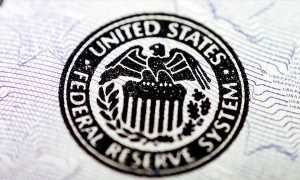Congressman Tom Emmer urges Federal Reserve to back innovation in digital assets

Congressman Tom Emmer (R-Minn.) has led a letter backed by six other colleagues on a bipartisan basis to the Federal Reserve, following comments from Chairman Jerome Powell about how a central bank digital currency would reduce the need for innovation from the private sector.
Rep. Emmer, who is among the leading voices in Congress arguing for a sensible approach to digital currency regulation and policy, even sponsoring bills shaping the regulatory framework governing the sector, took objection to the comments of the Fed chair, posting a number of questions for Jerome Powell and the Federal Reserve.
In the letter, Emmer said it should be the focus of the Federal Reserve to empower individuals to become investors, through supporting decentralized digital assets and domestic innovation.
“Empowering individual Americans to become everyday investors should be our highest priority—decentralized digital assets provide that opportunity. The Federal Reserve must work to support domestic innovation,” he wrote.
He went on to say that the government should not take steps to stifle innovation, and that the optimum regulatory framework is one that supports digital assets, rather than closes down innovation in the sector.
“It’s imperative that we get this right—or we risk losing the momentum of this technology altogether. Our government should never be in the business of thwarting innovation. I look forward to Chairman Powell’s response, and to continue working together to develop the best regulatory framework that supports digital assets,” according to the lawmaker.
The letter is framed around questions following the comments of Chairman Powell, which seek to explore the rationale behind the Fed’s approach to digital assets more broadly.
It begins by looking at the need for the U.S. to remain a global leader in financial innovation, and how the Chairman views policy around this direction.
“What steps is the Fed taking to coordinate with other federal regulators on the development of policy guidance for digital assets such as cryptocurrencies, and other critical related policy issues such as custody and accounting, to ensure the United States remains a leader in financial innovation?”
The letter goes on to address the need for regulatory clarity for banks and other service providers who intend to support digital currency and digital assets businesses.
“What steps is the Fed taking on its own or in coordination with regional Federal Reserve Banks to provide regulatory clarity to banks that wish to offer cryptocurrency or other digital asset custody to their customers?”
Rep. Emmer notes the importance of maintaining a network of private payment networks, in spite of plans for a central bank digital currency.
“When does the Fed plan to release the discussion paper exploring the design of a United States central bank digital currency (CBDC) and does the Fed intend to highlight the importance of preserving a marketplace of private payment networks?”
He also probes whether the launch of a CBDC would make the range of other applications powered by digital currency and digital assets obsolete.
“Since cryptocurrency networks facilitate a myriad of applications, from decentralized identity to decentralized file storage, do you believe a CBDC would make such applications, and the cryptocurrencies that power them, obsolete?”
The questions touch on what the lawmakers have identified as key objections and areas of concern, following comments from the Federal Reserve chairman which suggested that the major benefits of a CBDC introduction would tackle these areas.
The letter has been co-signed by Representatives Darren Soto, Ro Khanna, Glenn ‘GT’ Thompson, Frank Lucas, Eric Salwell, and Ted Budd, representing a spread of political affiliation.
The signatories have requested a response from Chairman Powell by no later than October 15.
Watch: CoinGeek Zurich presentation, How Bitcoin Will Change The Future of Data and Empower Everyone
Source: Read Full Article
